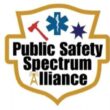Removing rebanding’s nondisclosure issue a positive step
What you don’t know can hurt you during a negotiation, as anyone who has tried to buy a used car can attest.
Regardless how much research the used-car buyer tries to do using Kelley Blue Book or other tools, the fact is that the car salesman always knows more about the value of the vehicle than the buyer. Perhaps most importantly, the car salesman haggles with potential customers on price every day, while the experience is a something buyers may experience only a handful of times over their lifetimes.
Advantage, salesman.
Public-safety licensees have expressed car-buyer-like frustrations while negotiating 800 MHz rebanding deals with Sprint Nextel. The carrier’s negotiators saw thousands of quotes during Phase I of rebanding and have seen hundreds more in the current phase of negotiations with public-safety entities. They have a hefty bank of experience concerning what costs generally should be for given tasks and products.
And, as I understand it, Sprint Nextel is quick to note any quote that it believes is out of line in a licensee’s proposal — as it should, because doing so protects the best interests of its shareholders and taxpayers (Remember, any leftover money from rebanding is put into the U.S. Treasury).
The problem has been that Sprint Nextel negotiators will argue that a quote is out of line, but they are not allowed to provide specific examples, because previous negotiations were subject to nondisclosure agreements (NDAs). Public-safety licensees are well aware of this, because they have not been able to share notes with peers.
When a public-safety entity employs a lawyer who has done several rebanding cases, the lawyer may be able to cite his/her knowledge base to defend a given quote. But if the lawyer lacks rebanding experience, the licensee is in the middle of a “he said, she said” decision: Believe the vendor with which the licensee must work throughout this arduous process, or believe Sprint Nextel, which has an incentive to lower the quote.
Because Sprint Nextel couldn’t detail the information supporting its position, the licensee had no way of knowing the circumstances surrounding the quotes being cited by the carrier. For instance, the licensee in question may have union, equipment accessibility or resource issues that contribute to making the quote higher than Sprint Nextel negotiators deem appropriate.
In such situations, it’s customary for both sides to dig in and stand their ground. But that’s a recipe for delay and added expense, which is the last thing anyone associated with rebanding wants to see.
That’s why this week’s FCC decision to lift NDA restrictions from rebanding negotiations is welcome news. Now, Sprint Nextel can cite specific quotes when defending its position, and a public-safety licensee can check the circumstances to determine the quotes’ applicability to the licensee’s situation.
Better yet, the licensee can compare notes with its peers, so it can ask pointed questions of its vendors and be able to better justify its position to Sprint Nextel before reaching the negotiating table. And the proposed Transition Administrator publication can serve as a guide to licensees — a rebanding Blue Book, if you will.
Removing the NDA barrier is not a silver bullet that will immediately put rebanding on the fast track. There are myriad other issues still to be addressed — but this should be a big help.
Without having to worry about NDAs, public-safety licensees can exchange information freely with each other — as well as Sprint Nextel — so they can better justify their proposals early in the process. Doing so should streamline deal-making, so public-safety systems can be relocated more quickly, in the process avoiding unnecessary costs for lawyers, negotiators and mediators that are an unfortunate byproduct of extended negotiations.
And it should make public-safety licensees more comfortable and willing to enter the process. After all, buyer’s remorse after purchasing a used car is an annoyance. Experiencing buyer’s remorse regarding a system upon which citizens’ and first responders’ lives depend — not to mention the communication director’s job, in many cases — is something everyone in this process wants to avoid, at all costs.
E-mail me at [email protected].
















